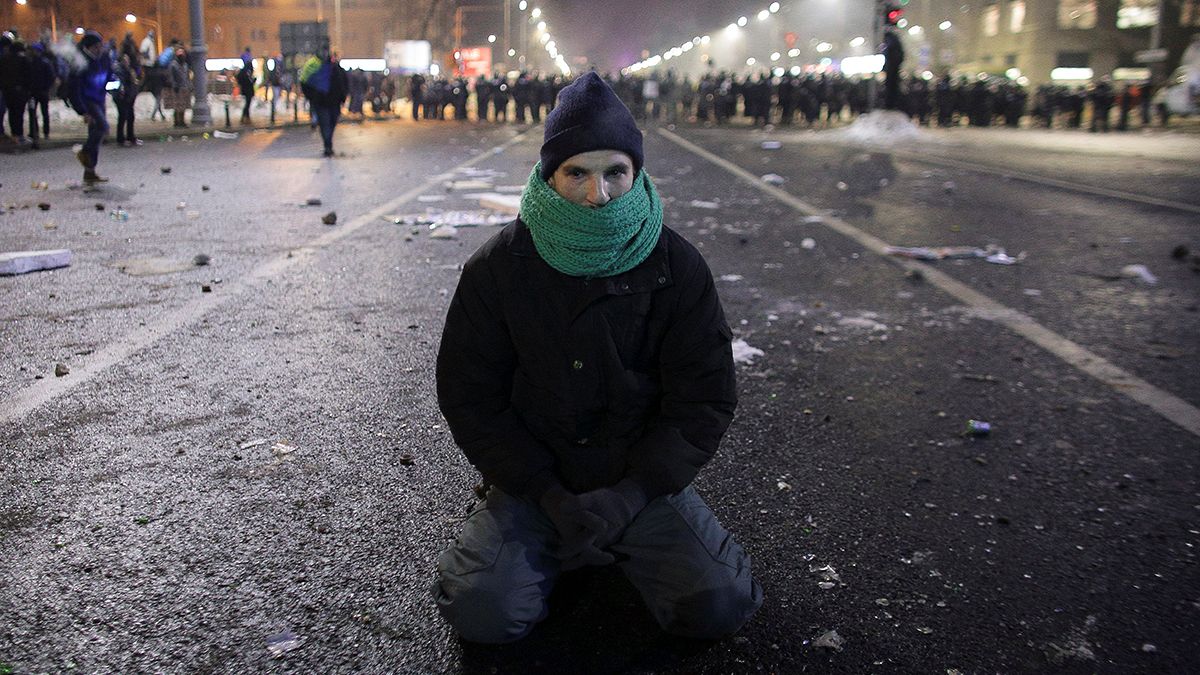Romania has seen its biggest protests since the 1989 revolution after the new leftist government pushed through controversial anti-corruption reforms.
Romania has seen its biggest protests since the 1989 revolution after the new leftist government pushed through controversial anti-corruption reforms.
Here we explain the changes, how they came about and why they are proving so contentious.
What has changed?
The social democrat (PSD) government announced a new decree that decriminalises some corruption offences (abuse of office) that cause less than 44,000 euros of financial damage.
A draft bill has also been approved that will grant prison pardons to around 2,500 convicts.
What will this mean?
Romania’s National Anti-Corruption Directorate (DNA) says a ‘great number’ of 2,151 cases currently under investigation will be affected by the decree. A ‘significant number’ of cases going through the courts will be dropped, according to the agency.
Romania, which has one of the worst reputations for corruption in the EU, has been praised in recent years for efforts in tackling the problem.
The DNA told Euronews 1,250 people were put before the country’s justice system in 2015, including 16 MPs, five ministers, five senators and 97 mayor and deputy mayors.
So, why the change?
The government says the changes will ease prison overcrowding and bring the criminal code in line with recent constitutional court rulings, but critics dispute this.
What do critics say?
Laura Stefan, an anti-corruption specialist from Expert Forum, told Euronews the changes were designed to help PSD president Liviu Dragnea, who has been charged with abuse of office. Dragnea has previously been convicted of electoral fraud.
“The rush in adopting this piece of legislation overnight, at midnight almost, is basically to favour him,” said Stefan. “You would have thought such things are no longer possible in Romania, that things have changed.”
Romania’s president Klaus Iohannis accused the government of ignoring the rule of law, while DNA said the ‘abusive conduct of the public officials’ would be encouraged by the changes.
The European Commission said in a statement: “The fight against corruption needs to be advanced, not undone.
“We are following the latest developments in Romania with great concern.”
Why are people so angry?
Experts say Romanians are angry because they see the changes as representing a u-turn on the country’s corruption reforms.
But they are also upset over how the decree was pushed through without a debate in parliament.
“What we’re most concerned with, first and foremost is the way the government has chosen to adopt legislation,” said Stefan. “This is really taking us back to the 1990s when legislation was adopted overnight and published in the official gazette. You go to sleep with one law and then you wake up with a different one.”
Romanian political analyst Radu Magdin said: “It’s very difficult to defend this but I think people would be a lot more relaxed if we’d had a proper debate.”
How did we get here?
Romania’s social democrats (PSD) swept back into power with a strong majority in December, on a ticket of higher wages and pensions.
It was year after a PSD government had resigned following protests over corruption in the aftermath of a deadly blaze at a Bucharest nightclub.
Where do we go from here?
Iohannis said on Thursday that he had filed a challenge with the country’s constitutional court over the decree, which is set to enter into force in a week’s time.
“I don’t think the PSD will blink,” Magdin added. “I don’t think the protesters will blink. But I don’t we are going to see occupy parliament or anything like that, because the government could spin that in their favour.
“I think it is going to be a fine balance in the next few days and weeks between who eventually gets tired of what. Time is on the side of PSD because at the same time they are voting through the budget and that has economic benefits for the population.
“It’s a generous budget for the economy. We’re gonna see a splash of money. They are going to try and compensate their image and say ‘let’s talk about serious stuff for the country and the economy and we should stop talking about something that’s a fait accompli’.
“The problem is the people on the streets and the president don’t agree and they will protests until the government gives in.”
